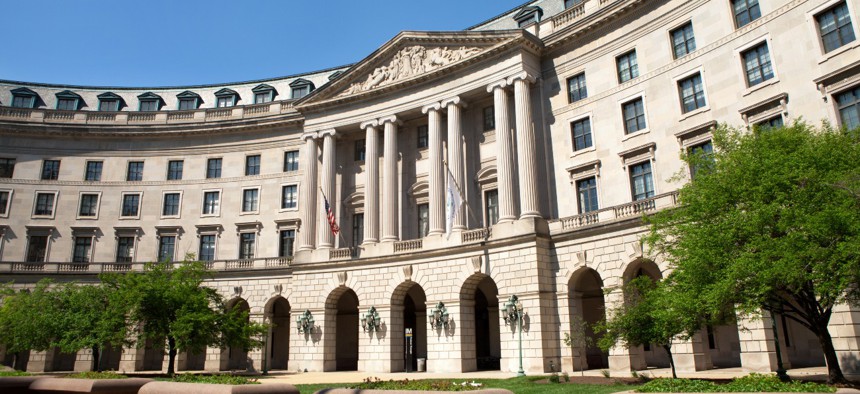
By Mark Van Scyoc / Shutterstock.com
Former EPA Leaders Call for ‘Reset’ of Agency’s Mission
Agency disagrees that changes are necessary.
On Wednesday, six former Environmental Protection Agency administrators, who served under Democrats and Republicans, called for a “reset” at the agency to renew its focus on public health and environmental protection.
The former administrators wrote an open letter as part of a campaign by the Environmental Protection Network, made up of over 500 former career and political EPA employees, as the agency approaches its 50th anniversary in December. The letter doesn’t mention President Trump specifically, but comes as his administration has reportedly sidelined science experts in regard to climate change, deregulation, the coronavirus pandemic and scientific integrity during the last three and a half years.
“Fifty years ago, pollution was visible and unrelenting throughout our country,” wrote the former administrators, who served between 1985 and 2017 (the Reagan to Obama administrations). “Today, less visible, but equally dangerous environmental hazards threaten communities in ways that differ [from] place to place [and] person to person. Speedier, more effective assessments and responses will be needed to face this and future pandemics, new toxic hazards and other emerging or unmitigated health risks.”
The EPA contested that it needs a reset. “EPA Administrator [Andrew] Wheeler is proud of our record addressing environmental problems impacting Americans, including delisting superfund sites that have lingered for years, cleaning up lead contaminated communities, and improving air quality,” EPA spokesman James Hewitt told Government Executive, in response to the letter. “He won’t be taking ‘reset’ advice from administrators who ignored the Flint lead crisis, botched the Gold King Mine response, and encouraged New Yorkers to breathe contaminated air at Ground Zero.”
The former officials called on the EPA to take the following actions:
- Reaffirm its commitment to protecting the environment and public health;
- Work without political interference and in an ethical and transparent manner;
- Take into consideration “inequitable environmental conditions” in all of its work;
- Collaborate with states, localities, tribes other federal agencies, nonprofits and private sector companies on public health and environmental protections; and,
- Prioritize work that has the greatest health benefit for the greatest number of people (with specific consideration for vulnerable populations).
They acknowledged that this will require more funding. Although Congress has largely ignored the president’s repeated proposed cuts for science, health and the environment, the Environmental Protection Network reported that in 1980 federal EPA spending was almost double what it was in 2019, when adjusted for inflation. “While we are concerned about the current state of affairs at EPA, we are hopeful for the agency’s future,” wrote the former administrators.







